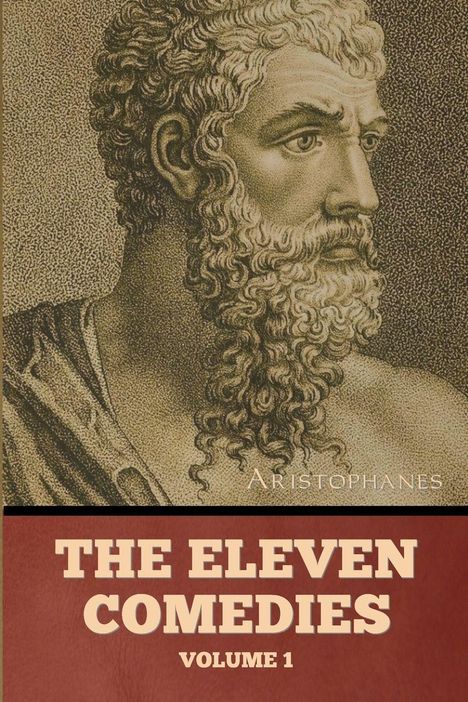Aristophanes: The Eleven Comedies, Volume 1, Kartoniert / Broschiert
The Eleven Comedies, Volume 1
(soweit verfügbar beim Lieferanten)
- Verlag:
- Bibliotech Press, 08/2025
- Einband:
- Kartoniert / Broschiert
- Sprache:
- Englisch
- ISBN-13:
- 9798897732067
- Artikelnummer:
- 12397393
- Umfang:
- 230 Seiten
- Gewicht:
- 380 g
- Maße:
- 229 x 152 mm
- Stärke:
- 14 mm
- Erscheinungstermin:
- 7.8.2025
- Hinweis
-
Achtung: Artikel ist nicht in deutscher Sprache!
Klappentext
The Eleven Comedies, Volume 1 refers to a collection of plays by Aristophanes, the greatest comic playwright of ancient Greece. This volume is part of a larger set that compiles his surviving works, known for their sharp satire, political commentary, and bawdy humor. Volume 1 includes: The Knights (424 BCE) - A satire on Athenian democracy, targeting the demagogue Cleon. The Acharnians (425 BCE) - A plea for peace during the Peloponnesian War, where the protagonist makes a private treaty with Sparta. Peace (421 BCE) - Celebrates the end of war, with a farmer flying to Olympus to rescue the goddess Peace.
Lysistrata (411 BCE) A bold, gender-centered comedy in which women withhold sex to force men to negotiate peace and end the war.
The Clouds (423 BCE) - A parody of Socrates and sophistry, though later revised after its initial failure.
The Wasps (422 BCE) - A critique of the Athenian legal system and its obsession with lawsuits.
Aristophanes' Style: Old Comedy - Features direct political satire, fantastical plots, and crude humor.
Parabasis - A choral interlude where the playwright addresses the audience directly.
Myth & Fantasy - Often includes gods, talking animals, and absurd inventions (e. g., a giant dung beetle in Peace).
About the author Aristophanes (446 - c. 386 BC) was an Ancient Greek comic playwright from Athens. He wrote in total forty plays, of which eleven survive virtually complete today. The majority of his surviving plays belong to the genre of comic drama known as Old Comedy and are considered its most valuable examples. Aristophanes' plays were performed at the religious festivals of Athens, mostly the City Dionysia and the Lenaia, and several of them won the first prize in their respective competitions.
Also known as "The Father of Comedy" and "the Prince of Ancient Comedy", Aristophanes wrote plays that often dealt with real-life figures, including Euripides and Alcibiades, and contemporary events, such as the Peloponnesian War. He has been said to recreate the life of ancient Athens more convincingly than any other author. His plays are characterized by preposterous premises, explicit language, wordplays, and political satire. His powers of ridicule were feared and acknowledged by influential contemporaries; Plato singled out Aristophanes' play The Clouds as slander that contributed to the trial and subsequent condemning to death of Socrates, although other satirical playwrights had also caricatured the philosopher.
Aristophanes' second play, The Babylonians (now lost), was denounced by Cleon as a slander against the Athenian polis. It is possible that the case was argued in court, but details of the trial are not recorded and Aristophanes caricatured Cleon mercilessly in his subsequent plays, especially The Knights, the first of many plays that he directed himself. "In my opinion," he says through that play's Chorus, "the author-director of comedies has the hardest job of all." (wikipedia. org)
Mehr von Aristophanes


